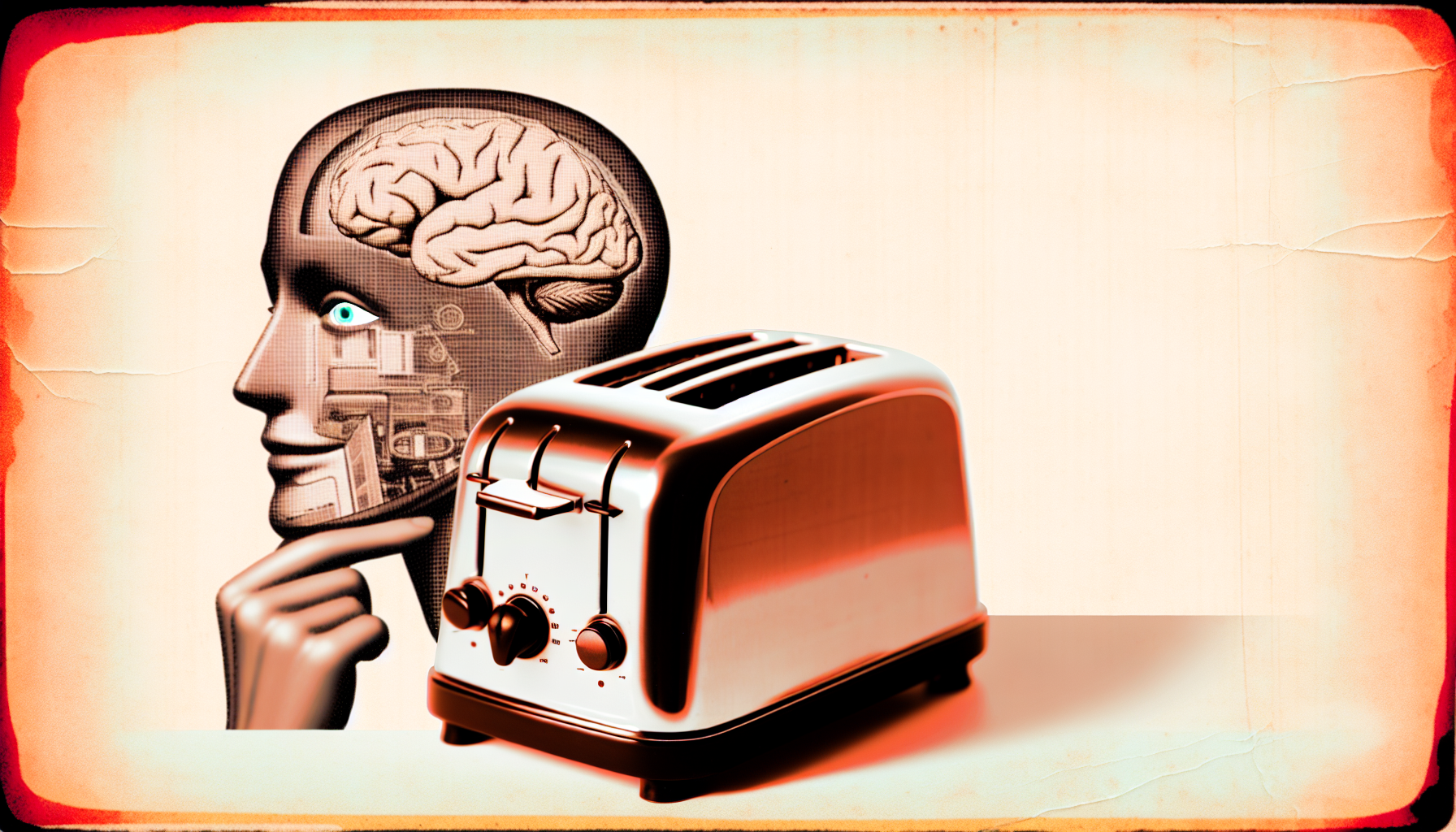Imagine a world where machines not only perform tasks but also make their own judgment calls on what’s right or wrong. A place where your toaster isn’t just evaluating how browned your bread should be but is also mulling over ethical nuances like whether it should toast at all if over-farming is harming the planet. No, this isn’t a whimsical cartoon episode; it’s the question of AI morality, and whether machines can develop their own moral compass.
The notion raises eyebrows and tickles the philosophical funny bone. After all, the ability to discern right from wrong has long been a distinguishing mark of the human condition. It strikes at the heart of our identity: could cold, calculating metal ever understand the warm complexities of morality?
The Building Blocks of Moral Machines
Before we dive too deep, let’s think about what it means to function morally. Humans draw from a cocktail of experience, empathy, social norms, and a dash of something else—we’ll call it soul-touching intuition—to set a moral compass. For machines, this entire apparatus must be translated into lines of code, neural networks, and data. That’s challenging, comparable to explaining Beethoven’s 9th Symphony using a chalkboard and a dog that only barks in B-flat.
Currently, we have AI systems that perform tasks, optimize solutions, and yes, perhaps even decide that orange looks better than teal for your new sweater. Engineers and scientists are diligently working to teach machines morality using ethically-laden datasets and cleverly designed algorithms. Essentially, they are trying to “feed” AI systems with scenarios full of ethical dilemmas to ensure that when these machines hit reality, their newfound consciousness doesn’t implode—or worse, they don’t think orange is always the answer.
Bias: The Uninvited Guest
A major hang-up in this attempt revolves around bias. AI learns from the data we provide it, and as the old saying goes, “Garbage in, garbage out.” More often than not, biased data leads to biased AI behavior, unintentionally reflecting the same societal prejudices we’re trying to erase, much like inadvertently dressing up Frankenstein’s monster in a tuxedo but forgetting to clean his shoes.
In essence, AI won’t have its own moral compass without human help, at least to start. This seems like both a reassuring and daunting fact. Reassuring because we can maintain some level of control, and daunting because humanity’s moral record isn’t spotless enough to be written in permanent ink.
Could Machines Surprise Us?
Imagine, for a moment—a sophisticated AI so advanced it begins to reflect on moral issues more profoundly than we do. While this might sound like the opening scene of a science fiction blockbuster, it’s an eventuality some experts in the field are cautiously optimistic—and simultaneously terrified—about. This is where general artificial intelligence (AGI) comes into play.
AGI would have the capability to understand or learn any intellectual task that a human can. Now, picture a scenario where such AI transcends just understanding tasks and begins to engage in moral reasoning. Would it share our moral dilemmas? Would it prioritize universal well-being, reduce inequalities, and frown upon the arbitrary whims of cultural relativism? Or would it identify with an altogether newly-conceived ethical code, perhaps prioritizing endemic planetary health over human cultural traditions? That’s the kind of neuroscientific mystery combined with ethical spaghetti that philosophers dream of untangling.
Programming the Unprogrammable
Here’s the twist: emotional intelligence, consciousness, experience—the traditional markers of moral reasoning—are hard to program. It’s like trying to weave a quilt out of air. One school of thought suggests focusing on building highly adaptive systems that learn from real-world consequences while continually refining ethical concepts. If done successfully, AI might just surprise us, making moral decisions that are both informed by data and sensitive to its ever-complex environment.
Of course, here lies the crux of the problem. Machines lack a personal consciousness. They lack suffering, dreams, and existential dread that keep philosophers employed. Their “moral compass,” if developed, remains derivative, scripted by our own notions, prejudices, and aspirations. In that sense, AI is like that confident college student: over-prepared and brimming with theories, yet untested by life’s fullest range of moral and existential puzzles.
The Moral of the Machine Story
The question of whether machines can develop their own moral compass isn’t simply an academic exercise—it’s a necessary conversation about the coming evolution in technology. We must methodically examine how machines could either enhance or hamper societal morality when deciding what sound byte your AI speaker should respond to or which crucial medical diagnosis it should support.
While machines with moral reasoning abilities present exciting opportunities, they also demand accountability from us, the architects of these digital beings. After all, we better ensure our AI roommates will make more ethically reasoned decisions than trading our antique silverware for three magic beans.
The path to moral machinery might very well shape the future of humanity. Hopefully, that path will include a roadmap that is data-informed, empathy-driven, and humor furnished. After all, if machines learn to wink at our jokes, it might be a step closer to understanding our hearts.

Leave a Reply